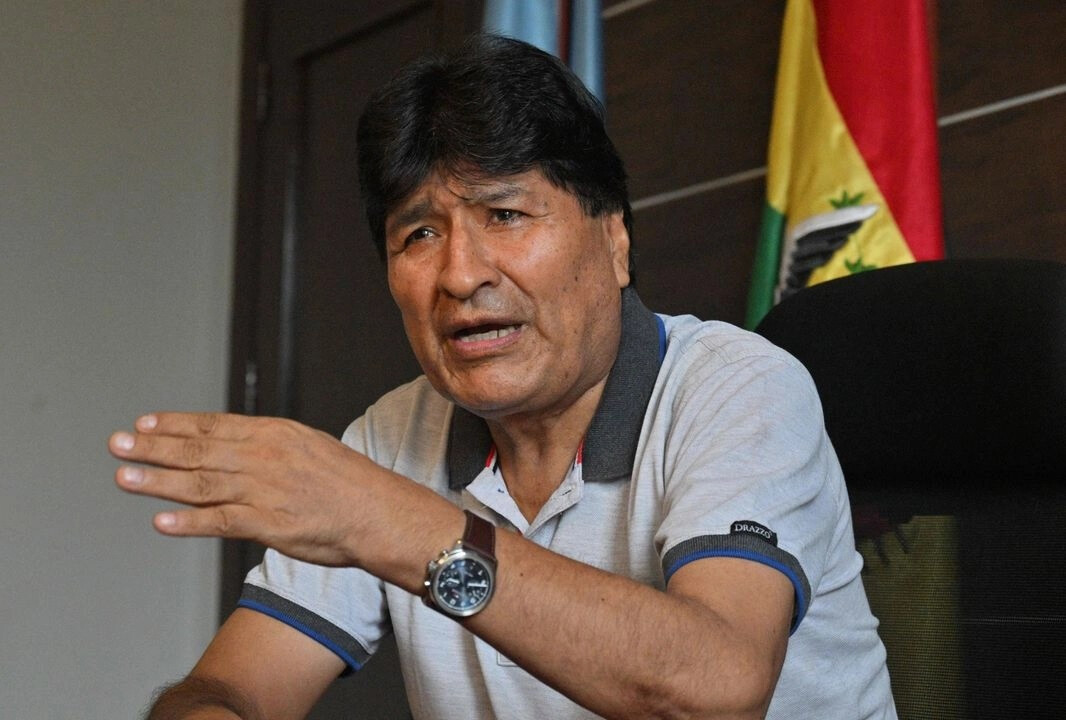
LA PAZ — Bolivian prosecutors announced on June 9 that they have launched an investigation into former President Evo Morales on charges of "terrorism" and several other offenses. This comes after a government complaint accusing Morales of instigating road blockades. Earlier, on June 5, Bolivian Justice Minister Iván Lima accused Morales of ordering road blockades following a decision to bar him from running in the August general election, raising "terrorism" charges.
The investigation stems from a video circulated by an associate of former President Morales. The video reportedly contains a voice, believed to be Morales, instructing supporters to block roads. "We have decided to accept this complaint, which means the start of an investigation," Prosecutor General Roger Mariaca told a press conference.
The Bolivian government last week filed a complaint against former President Morales for "terrorism, public incitement, and undermining public service safety," among other charges. Among these, the terrorism charge is the most serious crime, carrying a prison sentence of 15 to 20 years. Mariaca emphasized that prosecutors and police will "activate all investigative mechanisms to clarify this complaint."
Former President Morales, 65, last week accused the government of "fabricating cases" to defame him, denying the authenticity of the alleged phone call. Senator Leonardo Loza, an associate of Morales, claimed, "Unfortunately, they are resorting to artificial intelligence, just like in 2019, and using fake profiles to claim that Morales is ordering road blockades."
Former President Morales faced similar accusations in November 2019. At that time, the interim government of right-wing minister Jeanine Áñez also accused him of "terrorism." The government then released a video with a voice allegedly belonging to Morales instructing supporters to block roads, but that investigation did not progress.
For the past eight days, dozens of road blockade protests, primarily centered in Cochabamba, the political stronghold of former President Morales, have paralyzed the central part of the country. As of June 9, the Bolivian Roads Administration reported 28 blockade points nationwide. This has hindered the distribution of agricultural products and logistics. Road blockades lasting over 40 days as of January 2024 have already caused significant economic losses, intensifying price increases and shortages of staple foods. The Bolivian Confederation of Private Businesses estimates that road blockades cause an average daily loss of $119 million.
Supporters of Morales are demanding the resignation of current President Luis Arce, blaming him for the economic crisis and accusing him of manipulating judicial and electoral authorities to prevent former President Morales from running in the August general election.
Former President Morales has been in hiding in the Chapare region since October, and an arrest warrant has been issued for him in connection with a minor trafficking case during his presidency. He denies these charges. President Arce, who was once Morales's longest-serving minister in his government, has accused his former political ally of instigating protests to disrupt the general election. He claims Morales is inciting protests "to forcibly be allowed to run" despite judicial rulings. The Bolivian judiciary has ruled that presidential re-election is allowed only once. Morales served three terms as president from 2006 to 2019.
[Copyright (c) Global Economic Times. All Rights Reserved.]






























